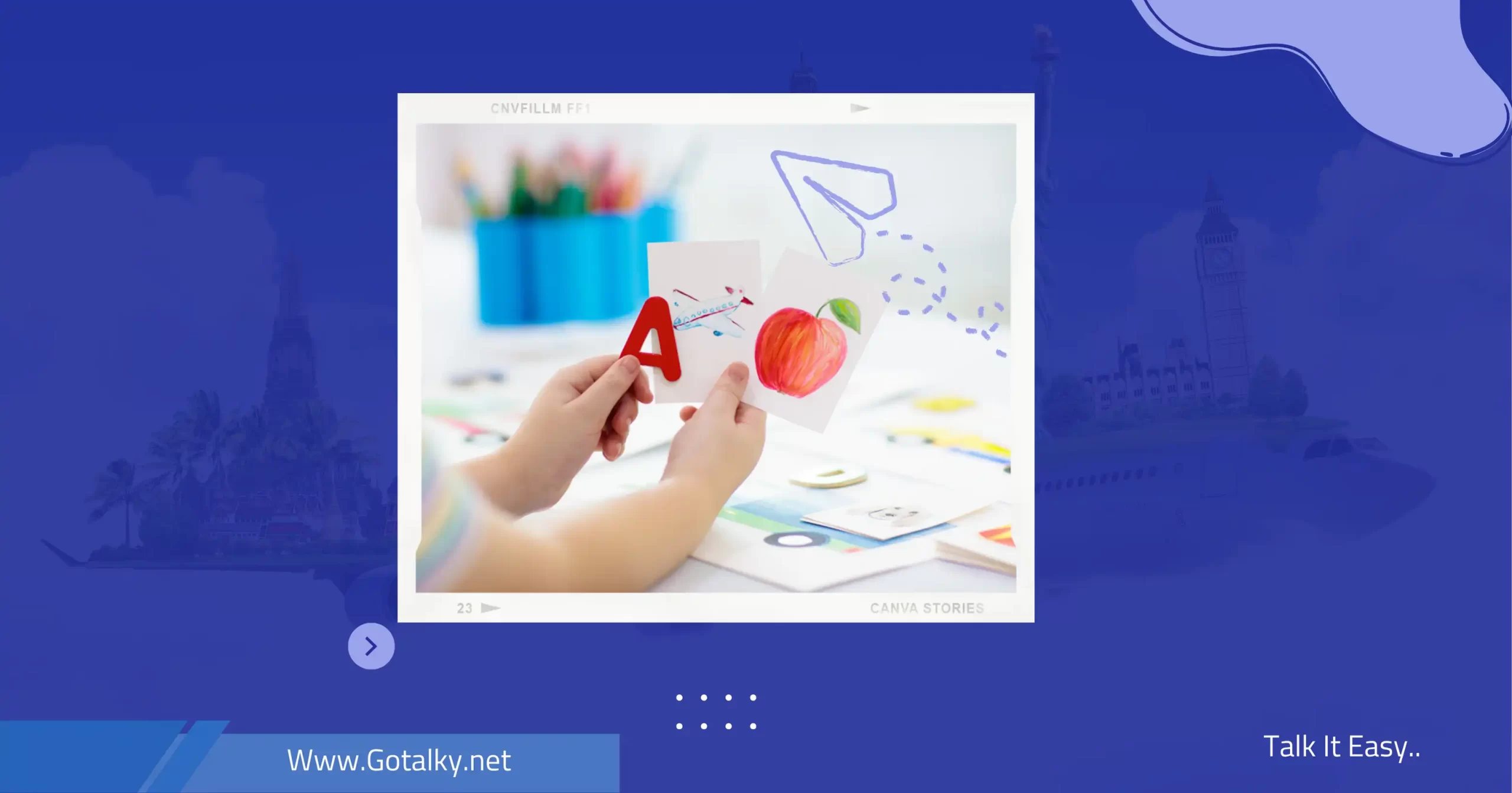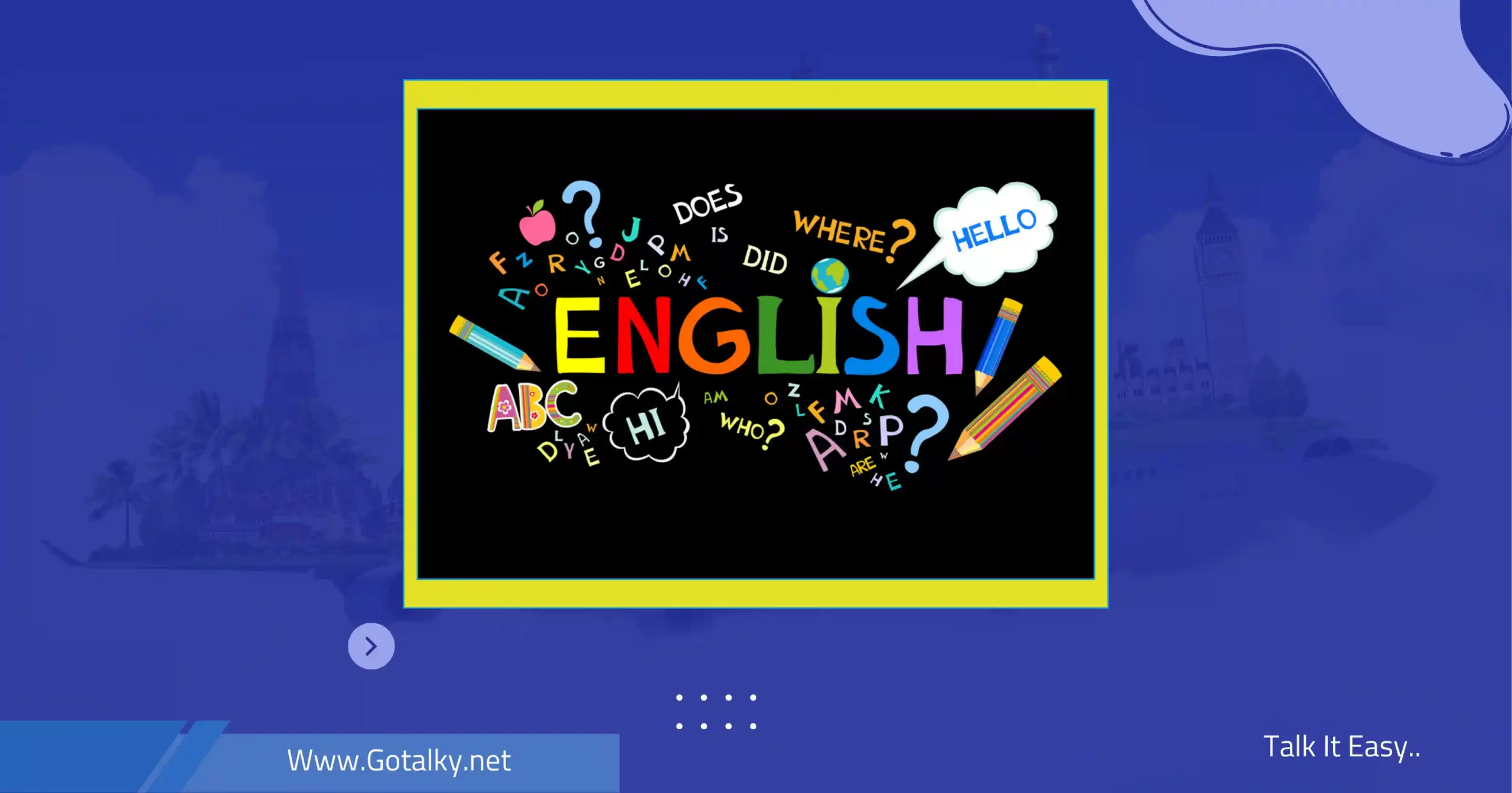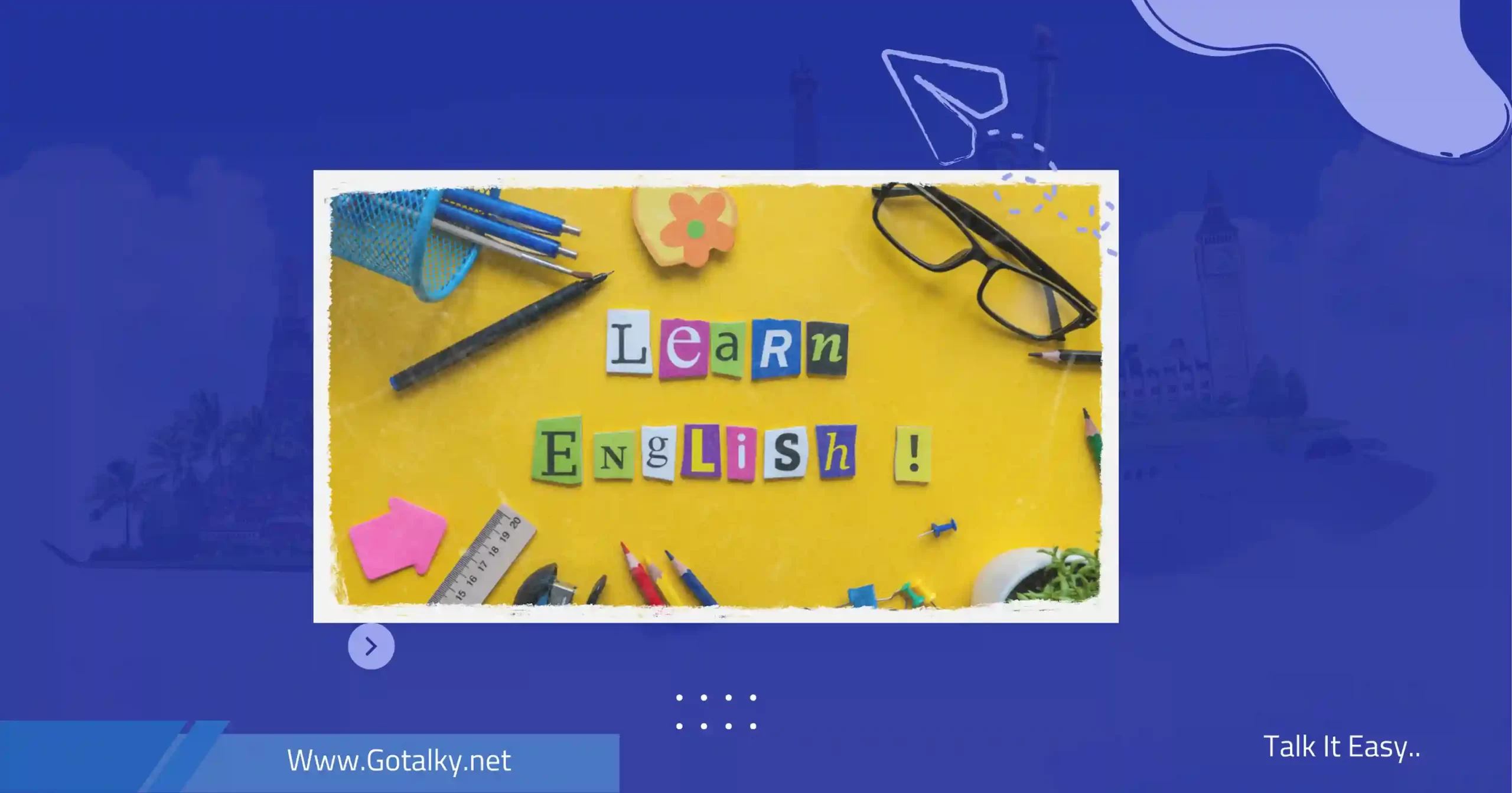
Learning English from scratch provides individuals with great opportunities in work, education, and travel, as English is a widely spoken global language used by many people all over the world. To communicate
with others and achieve success in their professional lives, individuals must learn English from scratch.
Learning English from Scratch for Children
Learning English from scratch for children is one of the essential steps they should achieve in their educational journey. To assist children in accomplishing this important step, many centers and schools offer
specialized lessons and courses to teach English from scratch for children. GoTalky is one of these schools that provides comprehensive and enjoyable educational programs for children interested in learning
English from scratch.
The English language learning programs for children at GoTalky stand out for their innovative and comprehensive teaching approach aimed at enhancing children’s language abilities holistically. These programs include the use of modern technology, educational games, diverse and enjoyable language activities to make the learning process more fun and stimulating for children.
The educational program for learning English from scratch for children at GoTalky offers personalized one-on-one lessons based on modern and innovative teaching techniques. These lessons are delivered online,
which allows children to learn English from anywhere and at any time that suits them. It also helps parents monitor their children’s progress in English and support their continuous development.
Learning English from Scratch to Mastery
Learning English from scratch represents a significant challenge for many, but at the same time, it presents a great opportunity to improve personal and professional capabilities. To learn English from scratch and
advance to a level of mastery, several important steps and tips can be relied upon.
Firstly, starting with learning the basics of the language, such as essential vocabulary and basic language structures, can be achieved through various educational books and specialized courses focused on
teaching English from scratch.
Secondly, continuous listening to English is crucial, whether through watching movies, series, diverse audio clips, or engaging in conversations with English speakers.
Finally, continuous learning and regular practice are essential to develop language skills. This can be achieved by relying on educational lessons and instructors specialized in teaching English. Moreover,
consistently practicing English in daily life and at work will significantly enhance language proficiency and lead to achieving a professional level of English.

Learning English from Scratch for Beginners
The English language is considered one of the most widely spoken languages in the world, and learning it is of great importance for individuals who want to improve their job and educational opportunities. To
learn English from scratch, one can benefit from various educational resources, such as instructional videos on YouTube.
Educational videos on YouTube provide diverse and comprehensive learning resources for beginners to learn English from scratch. For instance, learners can benefit from instructional videos that explain basic
vocabulary and essential language structures. Additionally, there are videos that focus on enhancing fundamental language skills like listening, speaking, reading, and writing.
The advantage of using instructional videos on YouTube lies in their easy accessibility and availability for free. Learners can benefit from them at any time and from any location they find suitable, making the process of learning English from scratch more flexible and convenient.
What are the basics of learning the English language?
The basics of learning the English language include several fundamental linguistic aspects that learners should focus on. Among these aspects are:
Learning basic vocabulary and essential language structures, such as verb forms, adjectives, adverbs, pronouns, and the alphabet. This can be achieved by using various educational books and specialized courses in
English language learning.
Learning basic English grammar rules, such as the present simple and past simple tense, the future simple tense, as well as rules for adding “s” to verbs and nouns to form plurals. This enables learners to use
English correctly and effectively.
Additionally, learners can benefit from diverse educational resources, such as instructional videos and language exercises available online. They can also continuously expose themselves to the English language by
watching movies, series, and different audio clips. Moreover, interacting with native English speakers and attempting to communicate with them can greatly improve English language skills.
How long does it take to learn the English language?
The exact time it takes for a learner to master the English language cannot be determined precisely, as it depends on several factors. These factors include the learner’s current language proficiency, their
commitment to learning English, the quality of educational resources they use, and the availability of opportunities for practice and conversation.
According to various studies, learners can reach the A2 level (Elementary Second) in English after studying between 200 to 350 instructional hours. Then, learners need to study an additional 350 to 500
instructional hours to reach the B1 level (Intermediate First), and between 500 to 800 hours to reach the B2 level (Intermediate Second).
However, it is essential to note that these numbers are mere estimates and can vary from person to person. Therefore, it is crucial for learners to continue learning English and work on developing their language
skills continuously. They should remain committed to training, practicing, and conversing with English speakers to ensure better and faster improvement in their proficiency.
What are the 100 most common words in the English language?
The English language contains over a million words, but there are 100 words that are used very commonly and are considered the most famous in English. These words include nouns, verbs, adjectives, and
adverbs, and they are widely used in daily conversations. These words include “the,” “be,” “to,” “of,” “and,” “in,” “that,” “have,” “it,” “for,” “not,” “on,” “with,” “he,” “as,” “you,” “do,” “at,” “this,” “but,” “his,” “by,”
“from,” “they,” “we,” “say,” “her,” “she,” “or,” “an,” “will,” “my,” “one,” “all,” “would,” “there,” “their,” “what,” “so,” “up,” “out,” “if,” “about,” “who,” “get,” “which,” and many more.
Using the most common words in the English language is a fundamental part of learning English. New English learners should identify these words and learn them well to improve their language skills. These
words can also serve as a foundation for learning other English vocabulary and increasing their ability to communicate in English.
Beginner English speakers can find the most common words in the English language highly useful for building a solid English language foundation. New language learners can enhance their language skills by
focusing on these frequently used words and learning them well. New English learners should work on expanding their vocabulary and developing their language skills through reading, listening, and practice.
Conclusion
In conclusion, learning English from scratch requires a lot of effort, perseverance, and focus. It is essential to have the determination and dedication to achieve this goal. New English learners can improve their
language skills through listening, speaking, reading, and writing. They should make use of available resources such as books, websites, and educational programs to enhance their language skills. As learners start
to feel confident in their language abilities, they can begin conversing with English speakers and participating in activities that promote English language skills. Ultimately, anyone can learn English from scratch
with practice, hard work, and strong determination.





